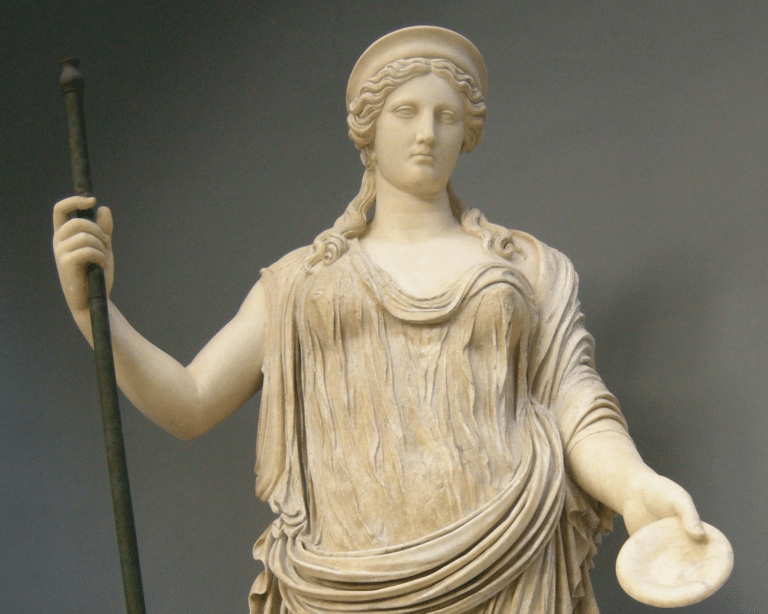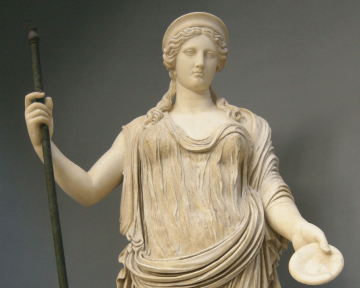By Alma Frances Pellett
For much of my life, the examples I’ve had of womanhood have been aspirational. Mothers who took care of their families in and out of the home, who had passions, failings, and interests encompassing the entirety of life. My own mother was no exception to this, being my primary example of the kind of woman I wanted to be. She’s the reason I am proud to be a feminist, an example of how to survive the death of a child (twice!) and still manage to creep along, an explorer of wanting to learn about the world around her, just as I have tried to do in my life.
But in these most recent years, as I have been applying my understanding to my own life as a woman, little things have appeared in the internal image I built of my mother. Some casual phrase here that hurts those I care about, a reminder of things in her history that were much darker, a bit of callousness seeping through. The deep feeling of love and pride is still there, and the encouragement to explore and live my own life, but those very human failings seem bigger as the years progress.
Communication has become sporadic, going to superficial or safe topics to avoid conversations that cause nothing but a feeling of loss in me for weeks afterward. I never minded my father being difficult to talk to, but my mother? This is far more personal. I don’t want to chance losing what little I have.
Most every woman I know has struggled with this at some point in her life, even more than those who have been surprised to see their mother in the mirror. Some have cut off communication altogether, including with anyone who expresses similar feelings. Some have stuck through, trying to be a source for others who might be in the same situation. Some have had no mother at all. But all are working at finding what is right for them, as a person.
But what will be best for me? I don’t yet know. I only know that I’ve managed to shape her in my image, the person I strive to be.
Will I ever get to know her, the real her? When at some point in the distant future I get to see all of who she is, good and bad, complex, deep, making her way through life having gone through some of the same struggles I now have, will I still love her? Will she still love me?
I think we will. It’ll just be a different kind of love, something much more real. But for now, the challenge is in simply letting go of the woman I wanted her to be.
Alma Frances Pellett is a software developer, writer, and mother to five autism spectrum children, working to be the woman she always wanted to be.






12 Responses
Authors Note: When I began writing this, I didn’t intend for it to also fit our Heavenly Mother, but the realization came as I was writing. Perhaps it’s why I can’t visualize Her (or her spouse); I don’t want to restrict Her to the little I know. But I do know she’s there.
My heart hurt a bit when I read your post. I am in my early 70s and have a daughter with four children who depends on me when she wants me but doesn’t want to know me and my struggles as I age. Who is totally focused on her own time and space. It can appear that all she wants me for is babysitter, money giver and reference in her speech—“I have a great mom, she is so strong, she’s accomplished so much….” Nice to know that she says that about me publicly but her actions tell a different story in private. I was a single mom and I know I made mistakes. But she doesn’t want to look back at that at all. And oh how I wish that she would care about me in my “old age” the way I cared for her through all these 40-something years. And I know I’m not alone, when my friends take off their “everything’s fine, I’m the matriarch of the family, of course my kids now have their own lives….” masks I know they hurt as well that their daughters don’t see them as people with needs, as people who, in an increasingly short time, won’t be here anymore. I’m not infirm, I still have a husband and home, we’re independent. So I’m not asking for a whole lot of attention. But it would be so lovely if she would actually want to spend time with me with no agenda of me paying for something or me listening to her latest crisis . . . I guess I wish my daughter were my friend. I’m not willing to risk the relationship we DO have though to push that.
Valerie, thank you for sharing this. My mom’s in her mid-60s and I appreciate your insights as my relationship with her develops as my own children age.
Thank you, Valerie. I feel the same about my older children, and I’m sure my mother feels the same. What do my children really know about me, or even want to know? How do I risk what little relationship we have by trying to make my feelings heard?
I’m not even sure if I want my mother or kids to be aware of this post.
The great and powerful truth of life is pretty much outlined in this post. The relationship you have with your own children will pretty much be exactly the same as the relationship you have with your parents, only amplified. You are in the process of ‘teaching’ them how to interact with a parent. If your relationship with your mother sucks, you may never even see your daughters. These are things that should be discussed – with all generations. Not just tippy toed around hoping things will magically get better.
I think as children grow up, we all see our parents as the role, and not as human individuals. In some ways my being sexually abused was a blessing, because in failing as parents in spectacular ways, I was forced to look at them both as people and not just see them as parents. My mother let her own fears blind her to what was happening. My father, well there was good too. He wasn’t just a horrible father. So, I had to ask myself if I wanted these flawed humans in my life at all. And since they were still together, they came as a package. In healing from the abuse, I had to let go of the mother I wanted, and either accept or reject the mother I had. Complete with the fact that she was still too afraid of life to leave.
So, I suppose that I was on an accelerated program to come to terms with her as a human.
In the last year of her life, she lived with me and I cared for her needs. It was interesting to see that the same inability to face life and deal with difficulties was what finally killed her. She had just let her medical condition sit there, not doing what needed to be done because she was unwilling to deal with the harsh realities of life, until I was there holding her hand acting as her mother rather than her being mine. That was how it always was when I was a child, with me being forced to be the adult, while she couldn’t face tough decisions.
But that year was good in that I also saw some of her good qualities, and got to know her as a person.
My narrative is something similar. I am the oldest of 9 children (with an 18 year age gap between myself and the youngest). My parents were both only children. In the finest tradition of over-achieving Mormon women everywhere, I co-ran my family of origin from a young age. I was a “3rd parent”. For about 6 years as a teenager at home, I also “mothered” in specific ways that drastically impacted my siblings to this day. The youngest is in her 20’s now and married.
Over the last 3-5 years, I unexpectedly find myself in conversations with my sisters where I am teaching them about our “mother” – and providing them with my perspective on how different traumas shaped her into who she is and what she values as a human. At the same time, these siblings are also deconstructing the role of “mother” I played in their lives and getting to know me as an adult, not as “their realer mother”.
Amy, I was not much older than my youngest siblings, and yet I was put in charge of all of the siblings, even my two older brothers. I was punished if the older ones didn’t do their chores, yet I had no way of enforcing my no-authority over them. So, I have had to deconstruct my parental relationship with the two youngest and the relationship with the two older brothers will never recover. They resented that I was trying to “boss” them around and didn’t understand that I had not chosen my role as Junior mother, that in fact it was abusive.
It has been hard to accept that because my mother was overwhelmed, she needed another adult and that certainly wasn’t my father. She understood that my two older brothers were not responsible enough to put in charge, so she turned her oldest girl (me) into Jr. Mother. She had no thought that I wasn’t old enough, or that the two older boys were bigger. Part of the problem with stereotypes that the church promotes is that because I was a girl, I was seen as more responsible than I really was, more capable of parenting than I really was. So, I was forced to be responsible and put in that role. People do not understand how damaging this parentification can be.
I have a sister who was born with serious heart problems. She stopped breathing in my mother’s arms at 3 weeks old and wound up having 5 open heart surgeries over the course of her life (so far). She’s stable now. I can remember 3 different points where the doctors told us to say “goodbye” because she wasn’t expected to survive the night.
I knew that we were all in over our heads, and I demanded the right to co-parent (at 13/14/15) of my parents because “I could do the job”, because I thought I “should” as part of “Honoring your parents” (religious training), and because I knew we were sunk if I didn’t.
I believed that I was given the wisdom and the gift of “agency” at age 8 to make choices (religious teaching) – so I “used my agency” as a teenager to “demand of my parents” that they trust me, that that they respect me as a peer instead of a child.
According to my quasi-horrified counselor, they weren’t supposed to do that. Of course, the implication/aspiration is that I wasn’t supposed to put them in that position. And that since I ended up in that position, they must have coerced me at some point.
And yet I did put them in that position of assigning responsibility to me (or at least recognizing that I was holding myself responsible for my siblings and my family and could use some help in “righteous judgement here”), and they did lean on me in a lot of ways – and it’s hard to tell which “happened first”, them asking me to accept responsibility, or (more likely) me telling them and demanding that they hold me responsible.
Experiencing a life with both acute and chronic traumatic experiences at impressively extreme subjective levels has distorted and illuminated what winds up being the highest priority to me.
Amy, I think that you recognized that you were taking adult responsibility already and what you demanded of your parents was the responsibility or authority to do so. When the parents recognize that they are putting the oldest child in an adult position, they make it official by telling the younger kids, “Amy is in charge while we are at the hospital. You need to obey her just as you obey us. She is your baby sitter. Now, if there is a problem or you think she is unfair, then come talk to us.” See, when you are officially given the responsibility, instead of unofficially given the responsibility, you have some authority, and also some protection in that your parents recognize they are asking a lot out of you. At least hopefully the parents try to compensate for the lot they are asking of you. Maybe they were still too overwhelmed.
But when you are not officially given the responsibility, the parents are in denial that they are even taking advantage of you, and you don’t have the authority of officially acting in the parental position, so the siblings hate you for bossing them.
So, I think you were smart and it shows strength to demand the official responsibility, because I think you were already there and just needed it to be official so you had authority. You saw that your parents really needed you to be more adult than you really were. But as a normal kid, you probably thought you were more grown up than you were.
The think what is most damaging about the parentification is when the parents, instead of being overwhelmed by something real like a child with heart problems, just sort of don’t want to deal with adult life. The alcoholics or other dysfunctional parents. Or the parents who confide marital problems to the child. It will make it easier for you to forgive. So, you had one advantage in that at least you understood why your parents couldn’t cope.
But you were still not able to do the growing up you needed to do for those teen years.
Thank you. Your words helped me sort something out and eased some of my tension and confusion from correlating the human adult I am know and the human teenager I was then.
Oof, Alma. This is such a hard place to navigate in a relationship. I think the desire to love is sometimes enough to have good hope for the future of the relationship.